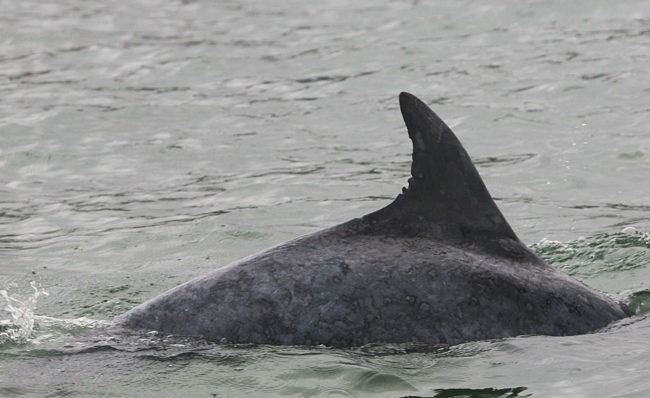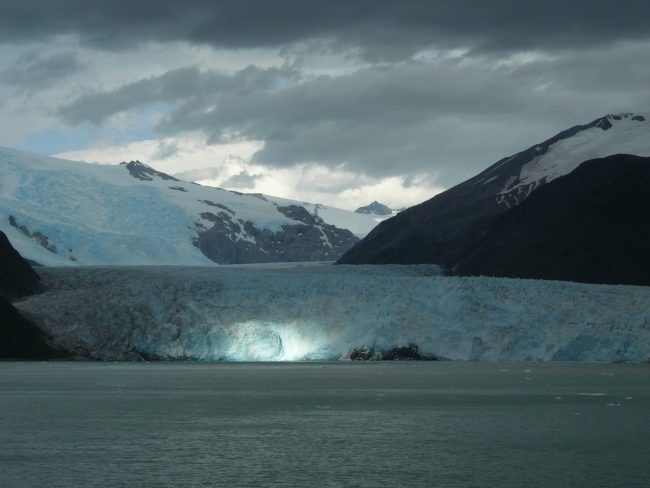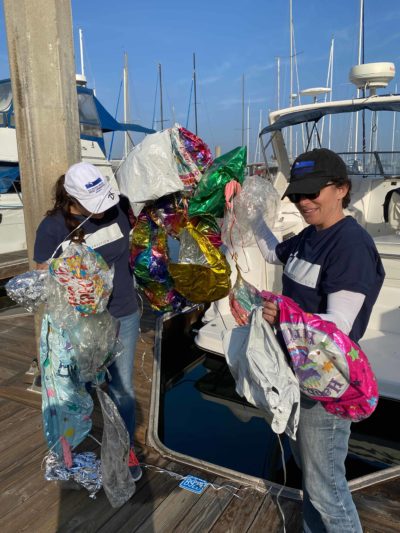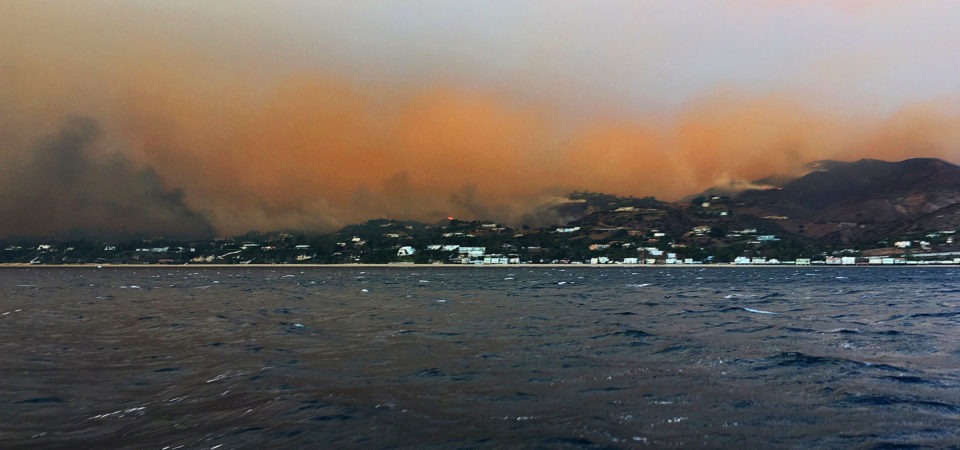This article has been modified from the chapter Apocalypse Now published in the book Stranded: Finding Nature in Uncertain Times (Heyday, 2023)
In the last week, five of my closest friends contracted Covid. And again, I think… no dinner parties for a while.
Out with my dog for a mini-walk, I breathe some thick, ash-filled, unhealthful air. The sky is smoky gray, and the sun seems a giant, hazy orange. And it’s only 10:00 am. I think, well, another wildfire in California.
Back in my home office, I catch up on more news before sinking into grant-writing mode to resuscitate my conservation nonprofit and continue my studies on wild dolphins off the Los Angeles coastline. It’s too late before I realize that reading the newspaper is a bad idea; today’s news revealed that things actually could get worse, on environmental, political, and economic fronts.

Unprecedented wildfires are far from normal. Climate change has amplified the occurrence of droughts, extremely hot days, and consequently, outbursts of inferno scenes.
A virus, sooner or later, will either go away or become endemic; but not this. No jab can stop what we are doing to the only planet we have.
As a scientist, I realize that stopping this snowballing crisis must be at the top of my priorities because it is one of the most pressing threats we are facing today. The tricky question is: What can I do about it?
Recently, I’ve found myself thinking a lot about this. Maybe it’s because apathy is rampant these days, an insidious emotion that can permeate our lives, producing anxiety, fatigue, anger, disappointment, and resentment. Apathy can also paralyze our senses and make us numb, disconnecting us from other human and nonhuman beings.
I believe apathy is something we must consciously fight with all our will. And nature is here to help, ready to throw us a line and teach us how to breathe again and rewire our minds. It’s up to us to catch that line.
Observing wildlife has nurtured my appreciation and respect for other living organisms, but with respect comes the responsibility to act. Undoubtedly, I could have been quite content with passing my days observing the behavior of other creatures without angst. Yet, as I got older, the wilderness around me started to change, and a little at a time, I changed with it.
Many of the natural places of my youth are gone now, and it saddens me. I am troubled by what’s happening to our land and seas. I am worried about failing nature. I fear losing all those open spaces where I experienced such natural beauty as a young girl.

I have been immersed in learning the story of human impact on the oceans for my entire adult and professional life. Oceans have endured over their multibillion-year existence, yet our species is the most dangerous enemy they face. There is no place we can’t reach; our footprints are everywhere. Even the high seas, belonging to no one and thus free to everyone, are not so far away that we cannot exploit them for profit. We scoop everything from the oceans, not just what sustains us. In doing so, we deplete marine habitats and life-supporting systems. Over ninety percent of large predatory fish are now gone, with sharks, bluefin tuna, and swordfish in dramatic free-fall, and we feed further and further down the food chain.
We treat the oceans as supermarkets with infinite shelves filled with goodies; then, we turn around and use them as garbage dumps. Plastic has spread far and wide in the sea. I have seen stranded whales’ stomachs filled with plastic bags, ropes, golf and tennis balls, spray canisters, surgical gloves, and sweatpants. And living creatures are only part of what we take. Our petroleum addiction has led us into deeper and deeper waters of the oil-rich seabed. But like fish, oil from the ocean floor is not an endless resource.

What if the hawksbill turtles I studied back in my twenties never returned to the Mexican shores where they were hatched? If the Vaquita porpoise, endemic to the Sea of Cortez in Mexico and now the rarest marine mammal, disappears forever? Or if the remaining few hundred North Atlantic right whales—so-called because they were the right whale to hunt—are pushed to extinction due to ship collisions and entanglement in fishing gear? I am afraid all the wonderful memories of my youth will be all that are left.
I am not alone in asking What can I do? My husband Charlie and I spend hours reading and discussing conservation and political issues and both of us try to do anything that might make even a crumb of a difference. Charlie believes in being ruthlessly self-critical of one’s actions and if I am truthful with myself, I am still doing close to nothing to address this ecological meltdown. After all, I am the environmentalist with a carbon-zero garden who still flies back to Europe. I am a carbon sinner. Guilty as charged.
Most of my friends ask the same What can I do? question too, except for those who cannot bear to think about it because it’s so overwhelming, and the mere mention of the topic upsets and depresses them. A newly coined word for how many people currently feel about climate change is eco-anxiety, defined as “the chronic fear of environmental doom.” This modern phenomenon creates a great sense of worry, inhibiting our ability to fight the ecological emergency we are witnessing.
There is nothing wrong with feeling worried. I do, for sure. Truly, though, I don’t think hiding my head in the sand and refusing to address the issue is a valid option. The reason for recognizing climate threats is not to define Armageddon but to prevent it. We often forget that saving the planet means saving ourselves. Earth will outlast us in one form or another. Humans are bound to be transient, like all other species.
Yet, I continue to struggle.
To try as individuals to make a difference for Mother Earth, many of us recycle, ride bicycles, clean up a beach, plant a garden, avoid plastic, go vegan, click to support an online campaign, sign a petition, and vent on the social media channel of choice. And then life goes on. Of course, everything helps, and individual behavior matters, but is this enough, especially when too many people continue to live as if everything is fine? No, this is not enough to bring about the immediate changes needed.
The main problem is that the ecological disaster we see now in America—and worldwide—is not only overwhelming but also more and more a political crisis of leadership.
Honestly, I have never paid too much attention to politics while growing up in Italy. I don’t particularly relish politics. This is not an excuse for not being participatory in bringing the change that my country needed, and still needs, to get out of its gritty situation. Then again, I never thought Italy’s actions or policies threatened anyone on a global scale as America’s actions do.
Now, I’ve lived in the States for more than twenty-six years. Sadly, I can’t afford the luxury of steering clear of politics anymore. The whale in the room in this country (and elsewhere) is a political system that favors economic gain over the well-being of the planet. That’s why, if I have to focus my efforts on what I can do to help nature, besides living a more sustainable life, I must act to make sure the political system works the way it should. This is where I believe I need to concentrate my energies in the immediate future as a scientist, a conservationist, and a responsible, active member of our society.
In my job as the president of an environmental nonprofit, the What can I do to save the planet? question comes up often. Frequently tied to: Is there still hope?
“Yes, you ought to do something to avert this global crisis,” I always say, emphasizing that individual action is essential, “and there is still hope.”
But hope demands, or better yet, action and commitment. It’s not hoping someone else will do something. Because climate change is here, knocking at everyone’s door.
Exploring animal behavior can provide a greater understanding of nonhuman beings and our wrong-doing toward them. By spending time observing the nature around us closely, we become better informed about nearby environmental issues. Curiosity can lead us to cultivate a better knowledge of those problems and then the motivation to work hard to involve other people, thereby building a sense of stewardship in the community. Finally, fortified with a squad of allies, we can lobby for more accountable, greener leaders and impact the political process.
Engagement in fixing one or more tangible issues with the help of others offers a productive relief from the anxious stagnation of these hazy times we live in and assuages the feelings of despair and withdrawal that can frequently overwhelm us. Because, in the end, doing something meaningful also makes us feel good. And the better we feel, the more we want to do meaningful things and inspire others to do the same.
We need all levels of government to cooperate in taking courageous climate actions, and all levels of government need to listen to what we have to say. Volunteering and lobbying at the local level (pushing for policies that will cut our reliance on fossil fuels and such), participating in protests, and writing about issues that are important to the health of our planet are a few ways that work for me as a scientist and writer. But each and every one of us can find our own paths to effecting change based on our personal strengths. Only then can we raise our voices together.
I look out the window. It’s still noon, but it seems like dusk. The sun is an orange dot. But tomorrow is a new day that will hopefully bring new ideas and possibilities to make this world a little better.
 Maddalena Bearzi is president and co-founder of Ocean Conservation Society. She holds a Ph.D. in biology and a postdoctorate from UCLA, and she has been involved in studying marine mammals, with a conservation bias, since 1990. Her research on dolphins and whales off California represents one of the longest investigations worldwide. She has published several scientific peer-reviewed papers; she is coauthor of Beautiful Minds: The Parallel Lives of Great Apes and Dolphins (Harvard University Press), author of Dolphin Confidential: Confessions of a Field Biologist (University of Chicago Press) and Stranded: Finding Nature in Uncertain Times (Heyday). Her new children’s book for MacMillan is forthcoming. Maddalena’s work and books have been covered by CNN, NPR, KPCC, Al Jazeera America, the Hallmark Channel, the Los Angeles Times, the Wall Street Journal, the Huffington Post, and American Scientist, among others. Bearzi has also been a writer for numerous media, including National Geographic. Born and raised in Italy, she now lives in Los Angeles with her husband and dog.
Maddalena Bearzi is president and co-founder of Ocean Conservation Society. She holds a Ph.D. in biology and a postdoctorate from UCLA, and she has been involved in studying marine mammals, with a conservation bias, since 1990. Her research on dolphins and whales off California represents one of the longest investigations worldwide. She has published several scientific peer-reviewed papers; she is coauthor of Beautiful Minds: The Parallel Lives of Great Apes and Dolphins (Harvard University Press), author of Dolphin Confidential: Confessions of a Field Biologist (University of Chicago Press) and Stranded: Finding Nature in Uncertain Times (Heyday). Her new children’s book for MacMillan is forthcoming. Maddalena’s work and books have been covered by CNN, NPR, KPCC, Al Jazeera America, the Hallmark Channel, the Los Angeles Times, the Wall Street Journal, the Huffington Post, and American Scientist, among others. Bearzi has also been a writer for numerous media, including National Geographic. Born and raised in Italy, she now lives in Los Angeles with her husband and dog.
The MAHB Blog is a venture of the Millennium Alliance for Humanity and the Biosphere. Questions should be directed to joan@mahbonline.org
The views and opinions expressed through the MAHB Website are those of the contributing authors and do not necessarily reflect an official position of the MAHB. The MAHB aims to share a range of perspectives and welcomes the discussions that they prompt.
